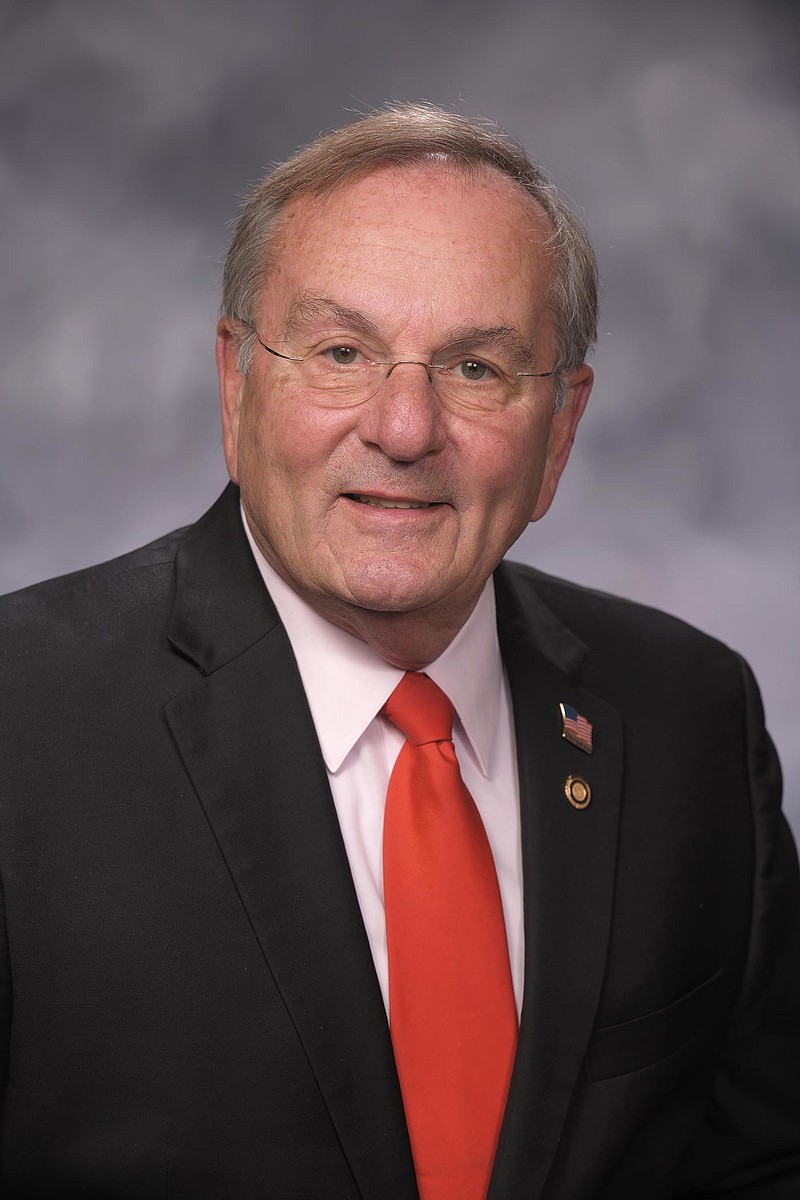Greetings from the fourth floor of your state Capitol; as I write this, we are still in session and debating some very important bills. So, I apologize because, in my last column, I promised you a recap of this 100th Session of the General Assembly. That information will be relayed to you in the next column in two weeks.
This last two weeks have been a whirlwind of activity with many of my colleagues moving at a feverish pace to get their bills across the finish line. We have felt frustrated with the lack of urgency from the other side of this building in getting some very important legislation passed. The House of Representatives has been very thoughtful in passing a number of great bills, only to be stalled in the Senate. I have said this many times during my first year serving you: This is a learning experience, and as I close this first year, I can tell you I have learned a great deal and continue to learn.
This week we passed SB 391, which is the agricultural development bill, jobs bill, food security bill and consistency bill. To many of you, it will be known as the CAFO (concentrated animal feeding operation) bill, but it is about so much more than CAFOs. Currently, legislation allows county commissions and health boards to place restrictions on farms through local ordinances resulting in inconsistent regulations across the state. This bill does not block ordinances or restrict local control. It simply states that ordinances cannot be more stringent or inconsistent with existing laws and regulations. There are numerous examples of ordinances mandating unattainable setbacks, monitoring inspections and bonding requirements to prevent specific farmers from building new livestock facilities. Currently in the state of Missouri, 20 counties restrict agriculture operations through health ordinances, five counties restrict agriculture operations through zoning ordinances, and four counties restrict agriculture operations through zoning and planning.
Part one of this bill states the Joint Committee on Agriculture be established, and it establishes the committee to study the economic impact of Missouri’s agriculture industry in the state, efforts to improve environmental stewardship while improving economic sustainability of Missouri agriculture, create incentives to encourage best practices to scientifically address Missouri’s carbon footprint and Missourians views on agriculture issues.
Part two deals with CAFOs, which will prohibit county commissioners and county health boards from posing standards on agriculture operations that are inconsistent or more stringent than state laws. It also doubles the distance on the “notice of intent to file an application” buffer distance and requires the notice be sent via certified mail. It also requires a Department of Natural Resources operating permit before building. It changes the administration of the Indemnity Fund from animal waste lagoon closure activities on real property. To view the complete language, please go to www.house.mo.gov.
Any violations of this provision shall be subject to penalties as set forth in the Missouri Clean Water Law for unlawful acts.
I share all this information to present to you the facts as shared with us on the floor of the House. Agriculture is our state’s No. 1 industry, and we have got to find ways to support farmers throughout the state and help save heritage farms that have been in families for generations. Special interest groups have been distributing inaccurate information, and I believe it is important for you to hear what we have heard on the floor.
The good news is younger generations are entering the farming business with more innovative and competitive practices that differs from the way my grandfather farmed back in the ’50s. While I was on the freshman tour before being sworn in, we visited a CAFO in Callaway County, and my firsthand experience was very positive. There was no odor, the security measures taken are in place to protect the animals from disease and infection, and the professionalism was above reproach. These are not large corporations but families who operate these facilities, and it is incumbent upon us to support them and not put up road blocks at every turn.
Now on to my legislation, HB 547, the Veterans Treatment Court is on the informal calendar in the Senate so it still has a chance of passing. HB 542, the Capitol Complex Fund, is on the formal calendar and is way down on the list of bills to be heard so it will probably not make it. HB 869, the Steamboat Legacy Fund, or National Steamboat Museum/State Museum, will also not make it across the finish line this year. We will be working with the parties concerned over the summer to find a way to make this happen so we don’t lose this museum to Pennsylvania. This is a treasure we need to keep in Missouri, and I’m working to make sure that happens even if it’s not here in Jefferson City.
It has been a pleasure and honor to serve as your state representative this year, and I look forward to our next session beginning in January 2020. I will be out in the district throughout the summer and fall and hope to see you and listen to your concerns and suggestions. Thank you again for this opportunity to serve you.
State Rep. Dave Griffith, R-Jefferson City, represents the 60th District, and shares his perspective on statehouse issues twice a month.

